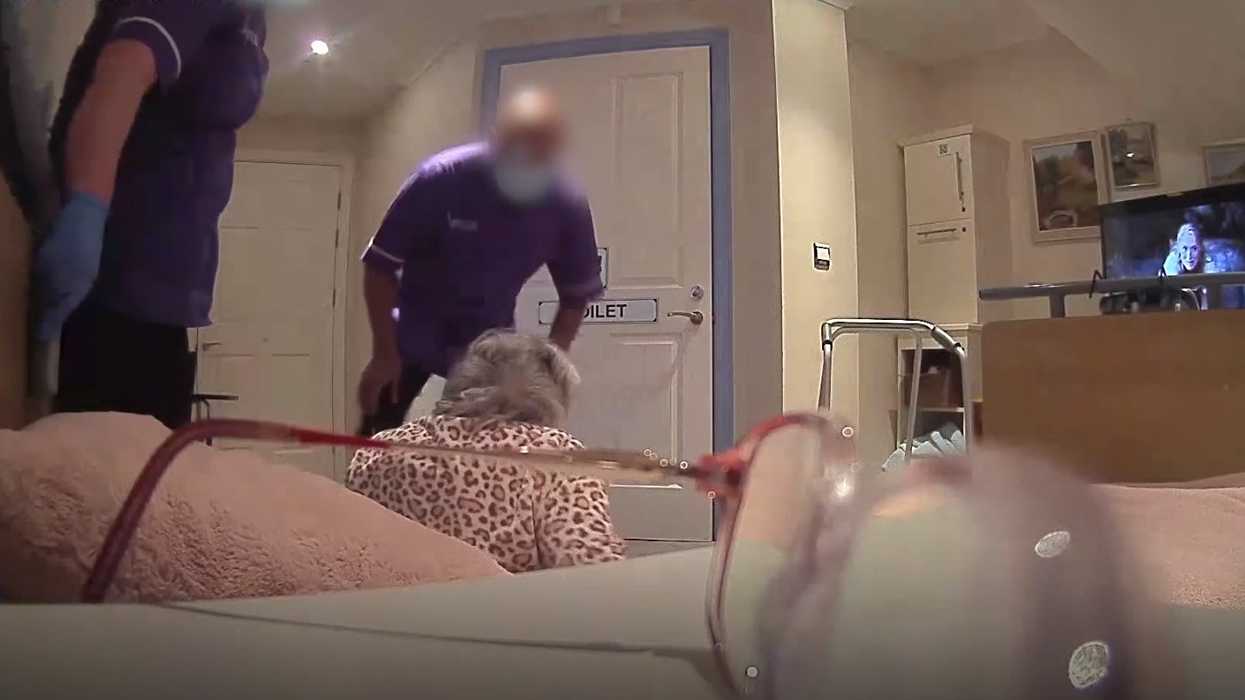By Julia della Croce (Zester Daily)
It’s that time of year when a rash of stories appears to suggest, despite hard science to the contrary, that certain foods — oysters, chocolate or what have you — fire up the libido. A recipe, on the other hand, can have a different kind of romantic power. It might stir up memories or evoke our roots, allowing us to mingle, in a metaphorical way, with our ancestors. For some people, certain foods, whether pasta or potatoes, are imbued with symbolic meaning. The Umbrians, for example, link love and meatballs. Their region, coincidentally, is the birthplace of St. Valentine, the patron saint of lovers, affianced couples and happy marriages (not to mention beekeepers, plagues, epilepsy and fainting episodes).
THE LORE AND LURE OF THE MEATBALL
According to the late Umbrian cookbook writer Guglielma Corsi in her classic Un Secolo di Cucina Umbra (“A Century of Umbrian Cooking”), it was once a custom among country people for a prospective mother-in-law to invite her son’s bride-to-be for a home-cooked meal the day before their wedding and present her with a platter of meatballs. The future mother-in-law would offer her one, impaled on a fork, saying, “Daughter-in-law, may you be the joy of my home. Will you bring discord or union?” The bride was meant to answer, of course, “Union,” after which the mother-in-law would respond, “Then eat your polpettina.” A promise of domestic harmony, sealed with a meatball. It’s perhaps not a surprising custom considering Umbria’s Etruscan ancestors, those mysterious first settlers of Italy who, historians tell us, believed that every food harbored a spirit.
In the years since I first crisscrossed Umbria to study its traditions and foods, I, too, have come to believe that a good meatball is a talisman for domestic happiness. Thinking like an Etruscan, I can equate its plumpness as a symbol of abundance, its spherical form with wholeness, good health and the infinite potential of love. Who, in any case (vegetarians aside), doesn’t love a good meatball?
RECIPE VARIATIONS AROUDN THE WORLD
As with everything else Italian, there is controversy about what constitutes a meatball’s proper structure. For the tenderest meatballs, some say to add water to the ground meat mixture; others add ricotta. Still others swear by blending in sausage meat or pancetta — fat makes for both flavor and moistness. Signora Corsi’s polpettine, a complex blend of three different fresh-ground meats as well as prosciutto, two kinds of cheese, egg, garlic, lemon zest, bread and marjoram, are probably as close to perfection as a meatball can come. But the Bolognese, who consider their cuisine unparalleled, like theirs “straight up,” with no fillers added to the meat, egg, and herb mixture. The succulence of their polpette is because of the addition of a healthy dose of minced mortadella. The Neapolitans sometimes add sultanas and pine nuts to theirs, a Baroque touch befitting their city. The Sardinians may use rice instead of bread, especially for meatballs that will be served at wedding feasts.
The meatball universe extends well beyond Italy. The Greeks spice them with cumin and oregano. A Colombian chef I know grinds together lamb and chorizo, then coats the meatballs with romesco sauce after cooking. A Spanish friend who runs a superb little restaurant near my house adds ground anise seeds to a mixture of beef, pork and veal, which he roasts in his wood-fired clay oven before serving the meatballs with a dollop of burrata in a puddle of tomato sauce. Persian recipes may blend yellow split peas with ground meat, pine nuts or dried fruits. Turkish mixtures are perfumed with cinnamon or saffron. And so on around the world.
I love them all, but the most tender is the result of a recipe I came up with one summer when the eggplants in my garden dangled from their vines ready for the picking, and I had just brought home a couple of pounds of fresh-ground lamb from the market. I roasted the eggplants until they were entirely collapsed and smoky, scooped out their flesh and plied the pulp with the meat mixture gingerly (overworking it results in a rubbery texture). I added scarce other ingredients besides garlic, rosemary and plenty of parsley — as anyone who is as fond of lamb as I am knows, the meat alone packs a big flavor punch. The eggplant sweetens and foils its gaminess.
No matter which kind of meatballs you make, there are many ways to serve them. Sometimes I offer them as an appetizer, threaded onto rosemary skewers. I might whip together hummus, Greek yogurt and cumin for a dip. Probably everyone’s favorite is meatballs al pomodoro. The color red is a universal symbol of love, passion and happiness, so that’s how I suggest you serve them on Valentine’s Day, whether you are feeding kin, friends, or lovers.
LAMB AND EGGPLANT MEATBALLS IN SIMPLE TOMATO SAUCE
Prep time: 40 minutes
Cook time: About 40 minutes
Total time: About 1 hour 20 minutes
Yield: 20 meatballs
INGREDIENTS
1 medium eggplant
1 cup day-old sturdy bread such as sourdough or country loaf, crusts removed and cut into 1/4-inch cubes (2 ounces trimmed weight)
1 egg
Scant 1 teaspoon fine sea salt
1/2 teaspoon freshly ground black or white pepper
1 large clove garlic, minced
1 pound ground lamb leg or shoulder
3 tablespoons minced fresh parsley
2 tablespoons fresh minced rosemary or 2 teaspoons dried crushed rosemary
Extra virgin or pure olive oil for frying
2 cups homemade meatless tomato sauce of your choice
DIRECTIONS
1. Preheat an oven to 400 F.
2. Grease a baking sheet lightly with olive oil. Cut the eggplant in half lengthwise and place each half face down on it. Roast about 30 minutes, until it is entirely collapsed, soft and lightly charred on the cut side. Meanwhile, place the bread cubes in a shallow soup bowl and cover with water. Soak until moistened, several minutes. Drain and squeeze excess water from the bread.
3. When the eggplant is cool enough to handle, cut off the stem. Chop finely.
4. In an ample mixing bowl, whisk together the egg, sea salt, pepper and garlic. Stir in the prepared bread cubes. Use your hands to break them up until they are well blended with the egg mixture. Add the chopped eggplant, ground lamb, parsley and rosemary. Using your fingers, mix the ingredients together without overworking them. If you have time, chill the mixture before forming the meatballs; this step can help you shape it into perfectly round spheres, but it is not essential.
5. With wet hands, form the mixture into equally sized balls about 1 1/4 inches in diameter, no larger than golf balls.
6. Prepare a platter with two layers of paper towels next to the burner over which you will be cooking. In an ample skillet or frying pan, pour enough olive oil to cover the bottom of the pan and warm it over medium heat. Fry the meatballs in batches to avoid overcrowding; there should be plenty of room around each for proper searing. When they have developed a light crust and look golden brown, about 10 minutes, transfer them to the paper towels to drain. If necessary, drain off smoky oil and add fresh oil to the pan to prevent the bits that settle on the bottom from burning. Warm the oil once again and finish frying.
7. If you are serving the meatballs in tomato sauce, warm it in a saucepan over medium heat and slip the browned meatballs into them. Cook them through, about 20 minutes. Serve at once. If you plan to make the meatballs in advance, cool and store them, with or without the tomato sauce, in a covered storage container in the refrigerator for up to 4 days. Alternatively, freeze them for up to 3 months.
Copyright 2016 Julia della Croce via Zester Daily and Reuters Media Express
Photo: Lamb and eggplant meatballs in tomato sauce for Valentine’s Day. Credit: Copyright 2016 Nathan Hoyt/Forktales











